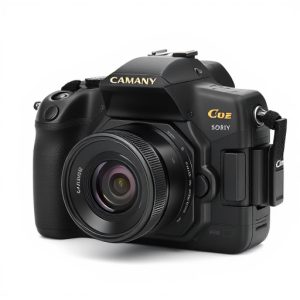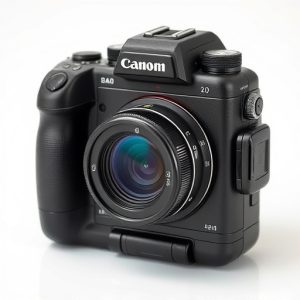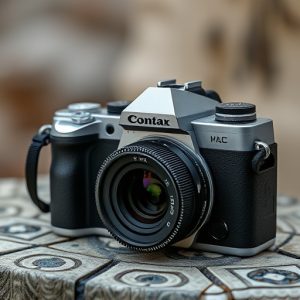Navigating Body Camera Laws: Comprehensive Guide for Purchase and Use
Body cameras have become a global law enforcement standard, enhancing transparency but raising priva…….
Body cameras have become a global law enforcement standard, enhancing transparency but raising privacy concerns. Legal frameworks vary widely, with key focus areas including consent laws, data retention policies, and protection of personal information. Jurisdictions differ on recording consent requirements, impacting how body camera footage is stored and shared. Staying informed about these regulations is essential for law enforcement adopting body cameras and individuals purchasing a body camera for sale to ensure compliance and maximize public safety benefits while respecting privacy rights.
“In an era where transparency and accountability are paramount, body cameras have emerged as a powerful tool for law enforcement. ‘Understanding Body Camera Laws’ offers a comprehensive guide to navigating this evolving landscape. From their rise in popularity and public perception to legal considerations and privacy concerns, we explore the nuances of these devices. Learn about regulations surrounding body camera use, especially when it comes to choosing the right model for various applications. Discover why understanding these laws is crucial, even as you consider purchasing a body camera for sale.”
Understanding Body Camera Laws: A Comprehensive Overview
In recent years, body cameras have become a ubiquitous tool in law enforcement across the globe. These small yet powerful devices capture real-time video and audio, offering unprecedented transparency and accountability for police interactions with citizens. Understanding body camera laws is essential for both law enforcement agencies looking to implement this technology and individuals considering purchasing a body camera for sale.
The legal framework surrounding body cameras varies significantly from one jurisdiction to another. Key considerations include privacy rights, consent laws, and data retention policies. For instance, some regions mandate explicit consent from both parties before recording conversations, while others allow for surveillance without consent in public spaces. Additionally, there are strict rules regarding the storage and dissemination of footage captured by body cameras to ensure that personal information is protected. Staying informed about these regulations is crucial to ensure compliance and maximize the benefits of employing body cameras as a tool for enhancing public safety and security.
The Rise of Body Cameras: Benefits and Public Perception
The advent of body cameras has significantly transformed law enforcement procedures, offering numerous benefits to both officers and the public. These small yet powerful tools provide a comprehensive view of interactions between police and citizens, enhancing accountability and transparency. With a body camera for sale becoming increasingly accessible, departments across the country have embraced this technology as a means to improve community relations and reduce conflicts. The footage captured not only serves as a record of incidents but also educates both officers and citizens on appropriate conduct during encounters.
Public perception plays a pivotal role in the widespread adoption of body-worn cameras. While some initially expressed privacy concerns, studies have shown that body cams can build trust between law enforcement and communities, particularly in high-tension areas. As the use of body camera for sale becomes more normalized, the technology is perceived as an essential tool for ensuring fair and unbiased policing, fostering a sense of security among citizens. This shift in perception has contributed to the growing acceptance and integration of body cameras into modern law enforcement practices.
Legal Considerations: Who Needs to Wear Them and Where?
In many jurisdictions, the use of body cameras by law enforcement has become a subject of both interest and debate. Legal considerations around body camera laws are intricate, focusing on issues of privacy, consent, and public safety. The requirement to wear body cameras varies across regions; in some places, it’s mandatory for all officers while in others, it’s left to individual departments or specific units. This decision often depends on local crime rates, community engagement strategies, and the nature of an agency’s operations.
The placement of these devices is also regulated. Typically, body cameras must record both audio and video, capturing interactions between officers and citizens. Some laws outline specific triggers for activation, such as during investigations or when force is applied. With body cameras for sale becoming more accessible, departments can choose equipment that suits their needs, ensuring compliance with local regulations while enhancing transparency and accountability in policing practices.
Privacy Concerns and Data Protection: Safeguarding Citizen Rights
The proliferation of body cameras, often marketed as a tool for enhancing police accountability and transparency, raises significant privacy concerns. These small, portable devices capture intricate details of interactions between law enforcement officers and citizens, including intimate moments and conversations that may not have been intended for public scrutiny. The data collected by these cameras can include personal health information, biometric data, and even private conversations—all of which must be handled with the utmost care to protect individual rights and freedoms.
In light of this, stringent data protection measures are essential to ensure that citizens’ privacy is not compromised. This includes secure storage and encryption protocols for captured footage, strict access controls to prevent unauthorized viewing or sharing, and clear guidelines on retention periods and disposal methods. Moreover, the sale and distribution of body cameras should come with robust safeguards, ensuring that only authorized law enforcement agencies can acquire them, thereby minimizing potential misuse and ensuring citizen rights are protected in a digital age.
Choosing the Right Body Camera: Features and Regulations
When considering a body camera, it’s essential to weigh its features against local regulations. Not all body cameras are created equal, and certain specifications cater better to different needs, whether for personal use or professional law enforcement applications. Key factors include video quality (HD or 4K), battery life, water resistance, and storage capacity. Additionally, the camera should comply with relevant laws regarding privacy, data retention, and consent for recording.
When shopping for a body camera for sale, ensure it aligns with your region’s guidelines. Some areas mandate specific recording parameters, such as explicit notifications when recording or limitations on storing footage remotely. Others may have restrictions on who can access the video evidence, emphasizing the importance of choosing a camera that adheres to these standards.


